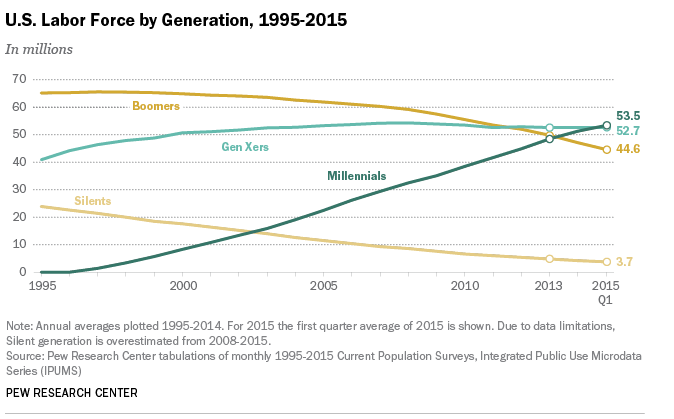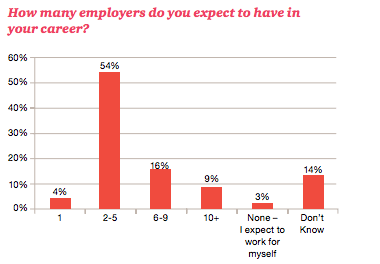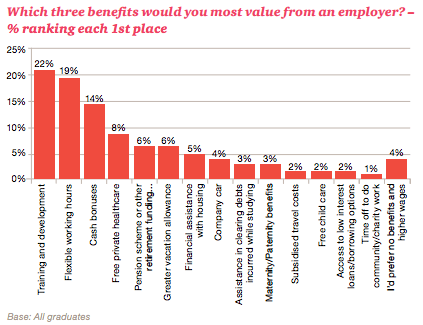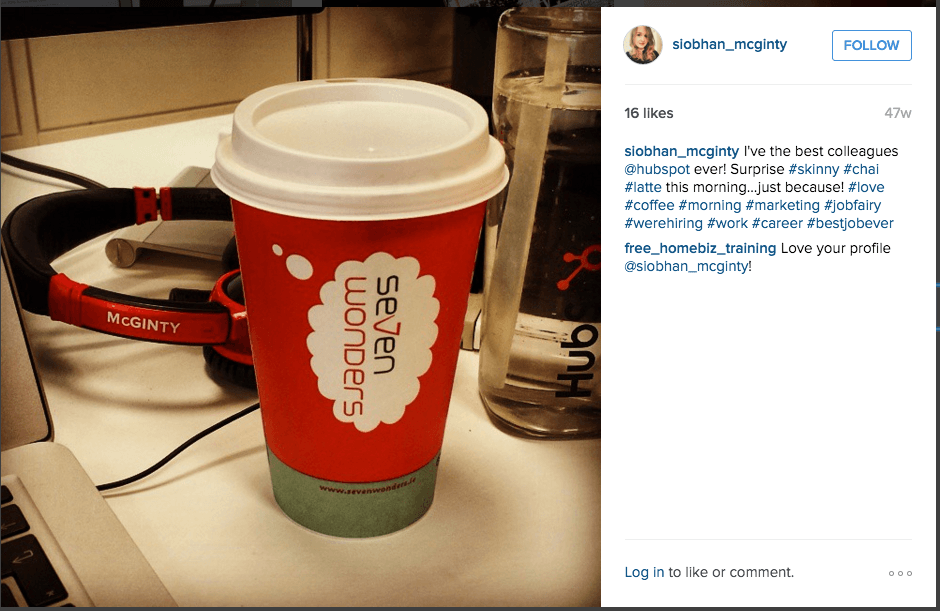Keep up with the latest hiring trends!
A new generation is driving the bottom line. Expected to make up almost 50% of the workforce by 2020, millennials (born from early 1980s to early 2000s) are starting to dominate the working landscape as more baby boomers begin to retire. In the U.S., the largest share of the workforce is now made up of millennials. This has a direct impact on recruitment activities as companies have to take into account who these millennials actually are, how to motivate them and how they can add value to their business. However, many companies are falling at the first hurdle as they struggle to attract millennials, resulting in a crucial skill shortages which can adversely affect the quality of work produced in organisations.
It seems the importance of attracting millennials cannot be stressed enough. Anne Donovan, Managing Director at PricewaterhouseCoopers, says:
“If businesses are not focused on millennials, they are at a competitive disadvantage. There is a clear business case to have these discussions and to change the culture in the workplace to attract and retain millennial talent. Organizations that understand how much millennials matter are going to win”.
It is important to really understand millennials before attempting to engage with them so let’s quickly break down some of the common characteristics associated with them:
- Technology: What really sets millennials apart from other generations is their affinity with technology. Whereas baby boomers had to learn to adapt as Information and Communication Technologies paved the way for the digital age, millennials have grown up using mobile, SMS and the Internet.
- Behaviour: Having experienced the Great Recession in the late 2000s which gripped the globe, millennials have a tendency to favour their personal needs ahead of the organisation that they work for. Many millennials were forced to compromise during the tough economic times and as the global economy gradually improves, millennials have a new found focus on themselves.
- Work preferences: Millennials tend to be uncomfortable with company bureaucracy and communication barriers. Instead, they value open communication, regular feedback and encouragement from management. They want to be recognised for the work they do and have a desire to move up the corporate ladder quickly. They want a more flexible approach when it comes to work and place more of an emphasis on work-life balance over financial reward.
- Career path: Whereas the baby boom generation were fiercely loyal to their employers, millennials are less likely to follow a linear path in their career. Instead, millennials typically jump from employer to employer and place more importance on personal relationships than work.
This is a critical period for many employers and it is absolutely imperative that they make a genuine effort to understand their new audience. The characteristics of this new generation demands a different approach when it comes to attracting them for new roles. So let’s take a look at some of the tactics you can utilise as an employer to attract and engage millennials:
1. Get Social
You really need to embrace social media if you want to get the attention of millennials. Millennials spend massive chunks of their day online and consume a huge amount of information, particularly on social which dominates the online experience. According to recent research from Pew Research Center, all of the top social media networks are used heavily by the millennial age bracket (around 18 – 35) which is of no surprise.
As an employer, you need to have a presence on social as it represents a perfect channel for you to ‘sell’ your company to potential millennial candidates. Even you do not have the resources to create and maintain accounts for all of the top social media networks, you will still need to conduct some research and determine where your target millennial audiences typically congregate on social. Once on social, you should consider pushing out messages that will appeal to this audience such as highlighting the company culture, behind-the-scenes videos, employee spotlights etc. Millennials are information savages so it is important to satisfy their appetite! For best practices when engaging talent on social, check out our blog posts specifically dedicated to Twitter and Instagram.
2. Embrace Mobile
We recently published a blog post on how important it is for today’s recruiters to become more adept on mobile in order to source, contact and hire the right candidates. Smartphone usage increased by 78% from 2013-2015 and this has been primarily driven by millennials who we already know are very tech-savvy. This means they have the ability to browse for career opportunities online. In fact, Indeed found that 78% of job seekers use mobile to search and apply for jobs.
The implications of this for employers is that they have to optimise their career site for mobile as a poor user experience can affect millennials’ perceptions of the company. Go one step further and start using mobile apps to increase your productivity and also your chances of engaging with millennials. Apps like LinkedIn Recruiter, Instajob and WhatsApp are perfect for this. We are living in the era of mobile and apps – make sure to embrace it or you will lose your competitive edge.
3. Make the Benefits Millennial-Friendly
Before the influx of millennials, workers valued transactional needs more than anything else but the millennial candidates today want other perks. The ‘Millennials at Work Study‘ by PWC found that training & development and flexible working hours were valued more than millennials than financial reward. It is clear than millennials are looking for the full package rather than their cheque at the end of the month so it is time to shift your focus from strictly cash bonuses. It is important as an employer to make employee education a core component of your communication strategy when it comes to engaging talent. Millennials want to be given tasks that allow them to stretch themselves and develop new skills.
The same goes for work-life balance which is particularly salient when dealing with millennials. Millennials are determined to balance work with personal goals so be sure to tell candidates in the interview process that while you expect them to get the required work done, you completely respect that they have a life outside of work. Google, for example, offer fantastic perks around work-life balance for employees such as on-site healthcare, company shuttles and financial assistance after the birth of a child.
4. Invest Time in Your Company Reputation
We live in a world where everyone can have an online voice which translates into comments and reviews on company-branded accounts. Therefore, companies need to minimise unfavourable mentions by monitoring and influencing conversations online. This is particularly applicable to millennials who value reputation as they seek to work to have a purpose and be proud of their company. The company is an important part of their self-concept and their social identity. They place more emphasis on reputation because they use it to interpret the quality of the job attributes that are difficult to learn before the interview stage.
What can really help with company reputation is getting your employees actively involved in posting positive messages about what life is like working with the company, which is more authentic than a company page blasting out a message. Of course to get employees motivated, the company culture has to be excellent. Employees won’t be inclined to praise their employer online if they are unhappy in their jobs.
5. Rethink Your Model of Millennial Engagement
According to a study by best practice insight and technology company CEB, the average millennial job candidate gets 12.5% more job offers than candidates from older generations. What this communicates is that the competition for millennials is very high, meaning the power is in their hands in this candidate-driven market. Millennials want a process that is fluid, unique and truly interactive so it’s important to make it interesting and meaningful.
To stand out, your company should try to be as innovative as possible when it comes to engaging with the talent. Try and break away from the more formulaic processes in your engagement strategy such as requiring applicants to fill in tediously long forms or conducting the standard interview in a hired conference room. Instead, why don’t you do the interview over Skype or meet the candidate in an informal, public place? Or arrange for the candidate to meet with a big thought leader in your company?
Recruiting is tough at any level but the audience that companies are now dealing with requires a different approach compared to previous generations. As Kimberly Kasper, Co-Founder of Osmosy, says “Millennials are going to be changing jobs every three years. Because of the need to maintain a steady flow of employees, recruiters have to change how they look for people”. Following the 5 tactics above will give you a good start in attracting this new generation.
(RELATED: The Ultimate Recruiter’s Handbook 2016)
Related Articles
Find out how the likes of IBM, IKEA and Siemens
drive hiring excellence with SocialTalent
drive hiring excellence with SocialTalent






